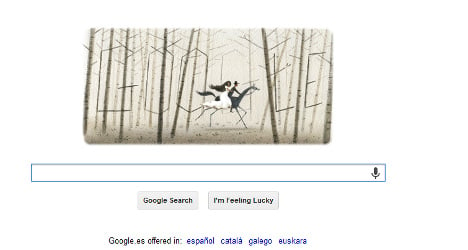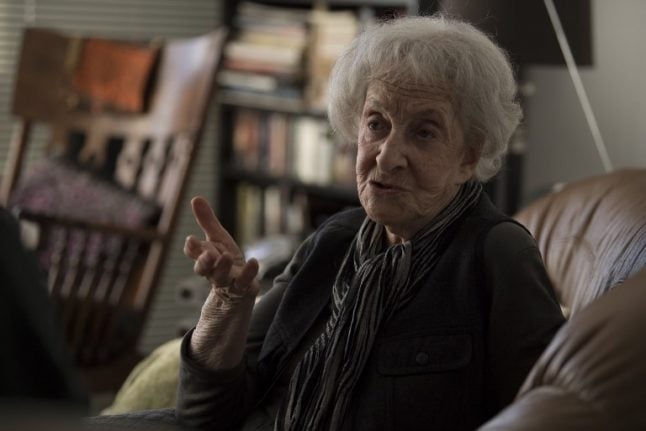The striking image of two figures on horseback riding through wintry woods represents a scene from García Lorca's poem The Unfaithful Wife.
The poem recounts an erotic interlude in the woods between a man and a married woman who claims to be a virgin.
The name of the successful search engine cane be deciphered in the spindly branches of the trees.
This Google tribute to García Lorca on his birthday also coincides with an major exhibition on the poet currently on view at The New York Public Library.
Organized jointly by the Fundación Federico García Lorca in Madrid and the famous lending institution, the exhibition showcases one of the artist's key works, a 'Poet in New York', and includes drawings, photographs, and letters .
The poetic masterpiece was written when García Lorca was a student at Columbia University in 1929-30. It was first published after his death in 1940 but then disappeared for several decades.
García Lorca, born in 1898 and universally considered to be one of Spain's greatest poets, is best known for his lyrical poetry, but he was also a dramatist and theatre director.
He was part of the co-called Generation of '27, a group of writers and artists which also included the surrealist painter Salavador Dalí and the film director Luis Buñuel.
García Lorca was killed during Spain's civil war by nationalist forces loyal to then General Francisco Franco in 1936.
His works were banned by the Spanish dictator until 1953 and many of his works were not published until after Franco's death in 1975.
The details of García Lorca's death remain unclear, with both his outspoken liberal views and his sexual preferences having been given as reasons for his assassination by nationalist militia.
Even the whereabouts of the poet's remains are not known. In 2009, García Lorca's family gave permission for excavations near the Andalusian village of Alfácar. However, no remains were found.



 Please whitelist us to continue reading.
Please whitelist us to continue reading.
Member comments